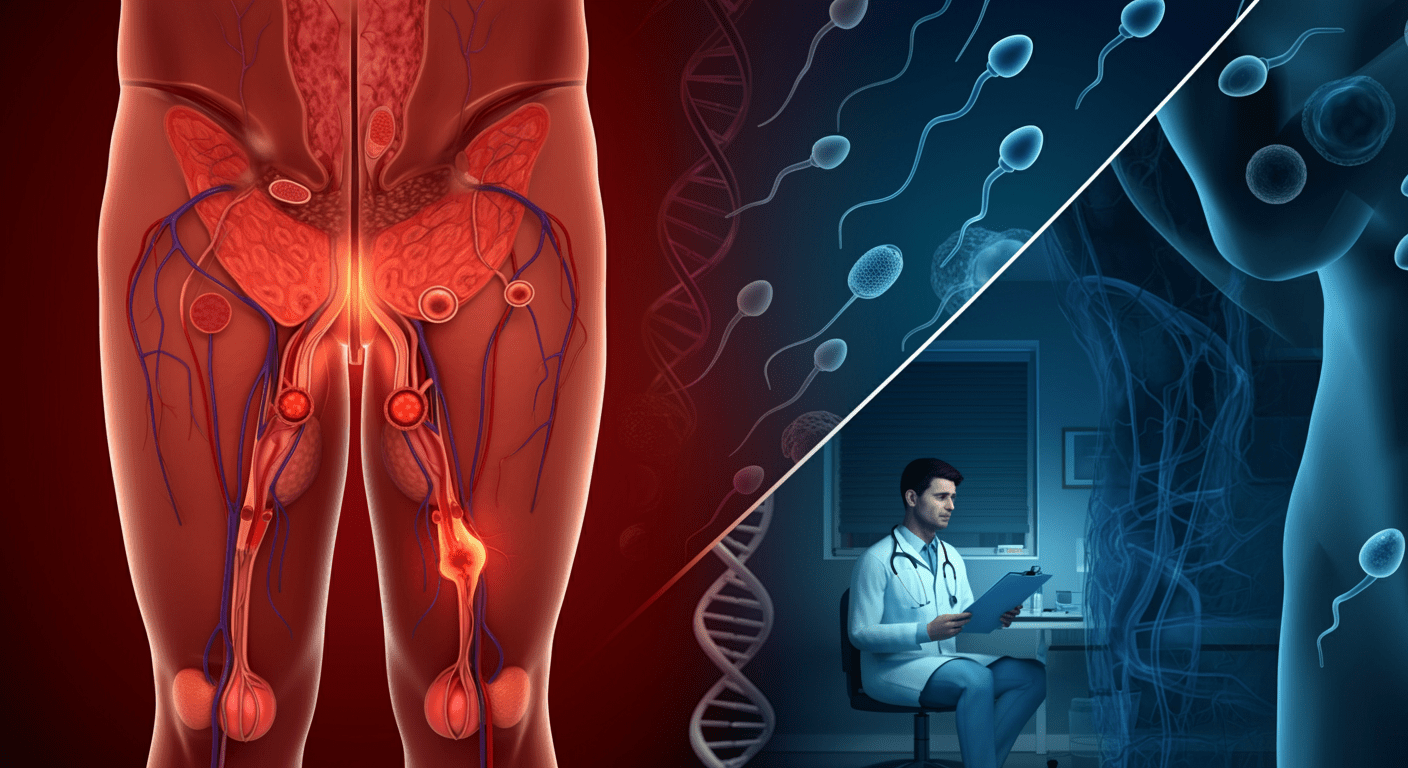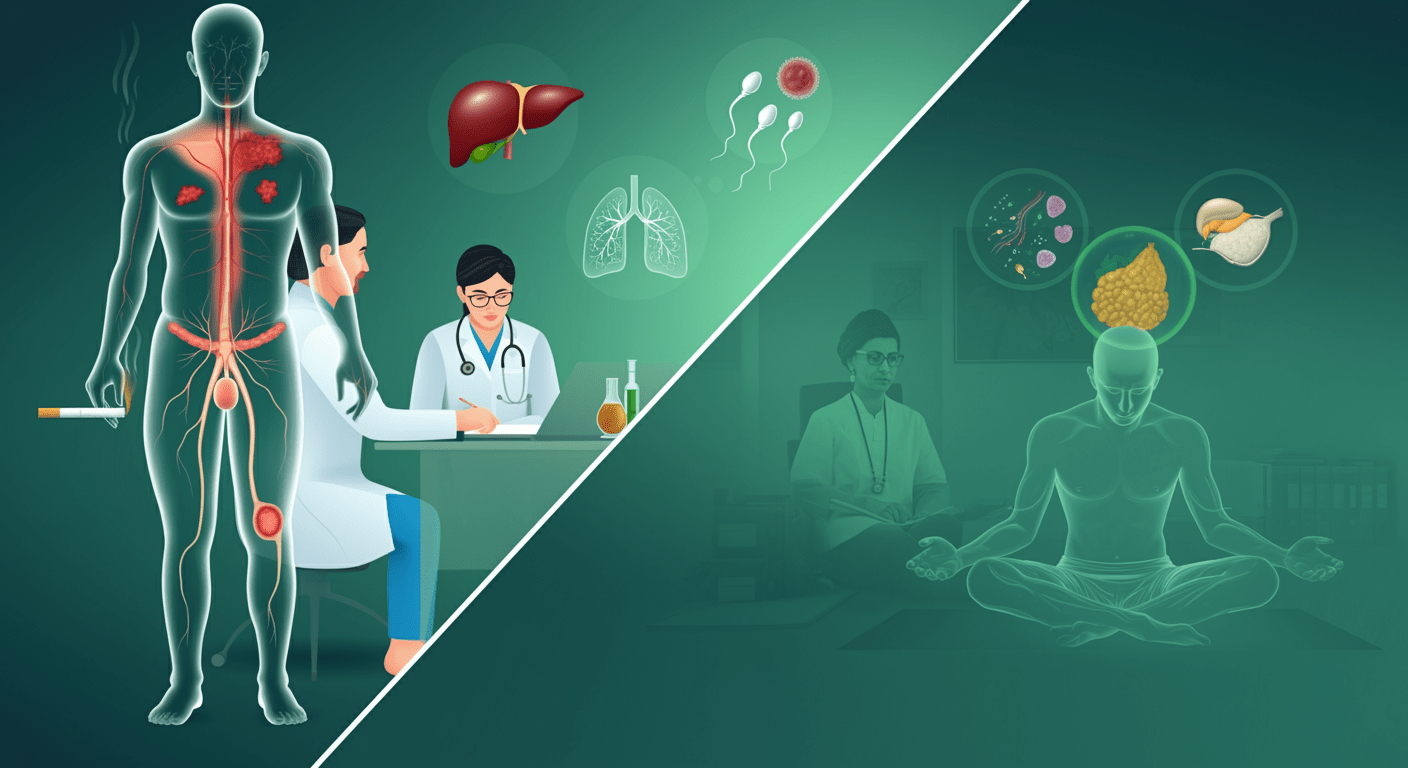Varicocele, a condition involving the enlargement of veins within the scrotum, is a common issue among men, particularly those experiencing fertility challenges. This article explores the crucial question: Can varicocele lead to permanent infertility? By examining the link between varicocele and male fertility, we aim to provide an in-depth analysis of its effects and the potential for reversing infertility related to this condition.
What Is Varicocele?
A varicocele occurs when the pampiniform plexus, a cluster of veins responsible for draining blood from the testicles, becomes abnormally dilated. This condition is similar to varicose veins in the legs. Varicoceles are more commonly found on the left side of the scrotum due to anatomical differences in venous drainage. Approximately 15% to 20% of all men have a varicocele, with the condition being identified in up to 40% of men seeking infertility treatment.
The Impact of Varicocele on Fertility
Research has established a strong association between varicocele and infertility. Several mechanisms explain how varicocele may impair fertility:
- Elevated Scrotal Temperature: The accumulation of blood in the enlarged veins raises scrotal temperature, negatively affecting sperm production and quality.
- Oxidative Stress: Increased levels of reactive oxygen species associated with varicocele can lead to sperm DNA damage and decreased motility.
- Hormonal Imbalances: Disruptions in testosterone production may contribute to impaired sperm development and reduced fertility.
Although varicocele is commonly observed in men facing fertility problems, not all individuals with varicocele experience infertility. This suggests that factors such as varicocele severity and individual physiological differences play a crucial role in fertility outcomes.
Is Varicocele-Induced Infertility Permanent?
A key concern is whether varicocele can result in irreversible infertility. Current evidence suggests that while varicocele can negatively affect fertility, it does not always cause permanent infertility. Many men with varicoceles successfully conceive, either naturally or with medical assistance.
Studies indicate that treating varicocele can improve sperm quality and enhance pregnancy rates. A meta-analysis found that varicocele repair significantly increases both pregnancy and live birth rates, regardless of initial semen quality. This highlights the potential for reversing infertility linked to varicocele.
However, the extent of fertility improvement varies from person to person. Factors influencing the success of varicocele treatment include:
- Female Partner’s Age: Younger female partners tend to have higher pregnancy rates following treatment.
- Severity of the Varicocele: Larger varicoceles generally have a greater negative impact on fertility but may also show significant improvement post-treatment.
- Duration of Infertility: Shorter infertility periods are associated with better outcomes after varicocele repair.
Although varicocele treatment can enhance fertility potential, it does not guarantee success for all individuals. Some men may continue to experience infertility due to other underlying reproductive issues.
Treatment Options for Varicocele-Induced Infertility
Several approaches are available to manage varicocele-related infertility:
- Surgical Intervention (Varicocelectomy): This procedure involves sealing off the dilated veins to redirect blood flow. Microsurgical varicocelectomy is considered the most effective technique, offering high success rates with minimal complications.
- Percutaneous Embolization: A non-surgical option where a coil or sclerosing agent is inserted into the affected veins to block excessive blood flow.
The choice of treatment depends on factors such as varicocele severity, presence of symptoms, and the couple’s fertility goals. Consulting a specialist in male infertility is essential to determine the best course of action.
Prognosis After Treatment
Most men notice improvements in sperm quality within 3 to 6 months after treatment, with some achieving natural conception during this period. Studies show that approximately 43% of couples conceive within a year of varicocele repair, with success rates increasing to 69% after two years.
However, while treatment can enhance fertility, it does not guarantee conception. Additional fertility interventions may be necessary for some couples to achieve pregnancy.
Conclusion
In summary, while varicoceles can negatively affect male fertility, they do not always lead to permanent infertility. Timely diagnosis and appropriate treatment can significantly improve reproductive outcomes. Men diagnosed with varicocele-related infertility should seek professional medical advice to explore suitable treatment options.
Addressing varicocele-related fertility issues early on can increase the likelihood of overcoming reproductive challenges and achieving successful parenthood.













